
The cost of petrol in the UK is approaching £1 a litre for the first time since 2016.
Some filling stations around the country have even been reported offering petrol at less than £1.
But motorists may be hard-pressed to find low deals as prices vary widely.
The key factor affecting petrol is the wholesale oil market.
Oil prices slumped in March after a price war broke out between Saudi Arabia and Russia.
It kicked off when Saudi Arabia failed to convince Russia to back production cuts that had been agreed with the other members of the Opec oil producers' group.
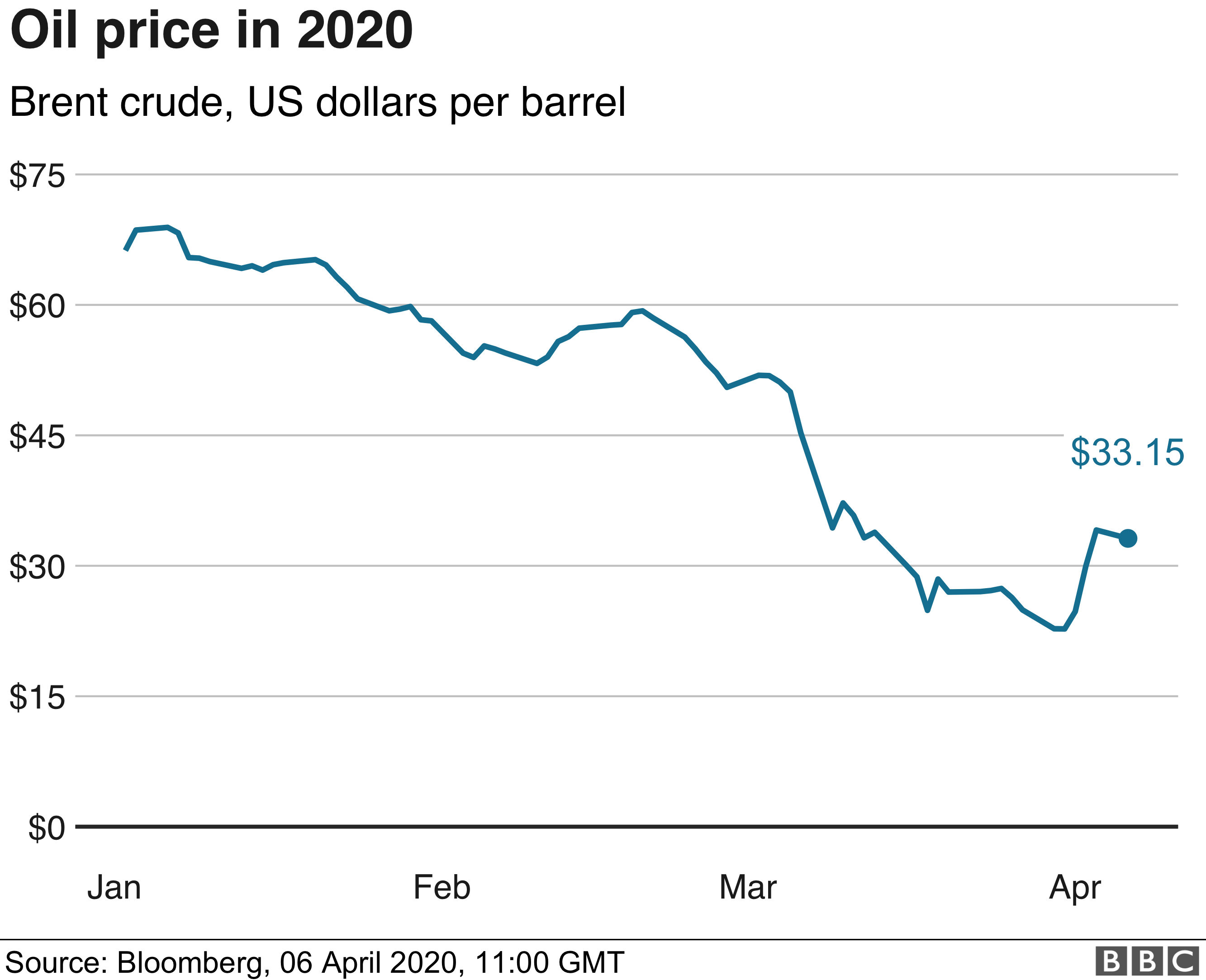
Oil prices tumbled and pretty soon fell to half the level they had been at just a couple of months earlier.
In January the price of a barrel of Brent Crude had touched $70.
By mid-March the price war had help it to fall to close to $30 a barrel.
But the global coronavirus crisis has also hit demand as airlines slashed services and travel restrictions reduced the amount of petrol pump activity.
The price of oil fell below $25 a barrel - the lowest level since 2002.
While the price of petrol is linked to the wholesale price of oil, it is competitively driven.
That means the cost motorists are charged is not directly linked to crude. Instead, suppliers control the prices they sell petrol at.
They tend not to reduce prices quickly - or raise them rapidly when oil goes up.
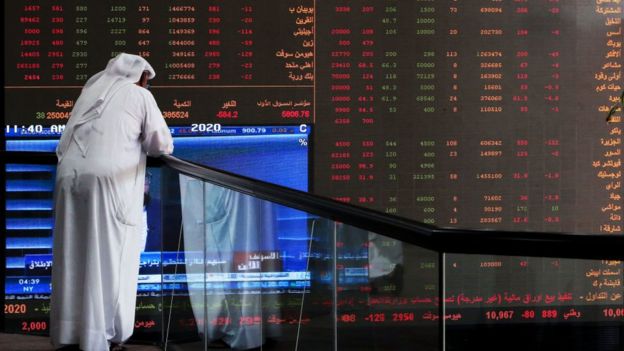
Image copyright Getty Images
Global oil prices have tumbled as Saudi Arabia and Russia fail to agree production cuts
That said, the pump price cuts in March were dramatic.
UK petrol prices fell by their largest margin in 12 years during the month, according to the RAC.
More than 9p came off the average price of unleaded in the month while the price of diesel was down by nearly 8p.
Another factor propping up the price of fuel is that the biggest proportion of the money you hand over for a litre of petrol goes to the government in the form of tax.
Fuel duty is charged at 57.95p per litre.
On top of that you have to pay VAT at 20% on the cost of petrol.
It varies according to which supplier you use and where you are in the country.
Supermarkets tend to offer the lowest prices, mainly because they use petrol as a loss leader.
That means they sell it cheap in the hope that once you've filled up, you'll pop into the accompanying store and spend lots more cash.
So while the average cost of petrol at the end of March was 113.54p, according to the RAC, supermarket prices were as low as 104p a litre.
But prices at local garages are set according to nearby competition.
So if you only have one local garage close by with no immediate rivals, it will be able to charge more as it has, to a degree, a captive market.
That's why prices vary even at the same supermarket chain or petrol company.
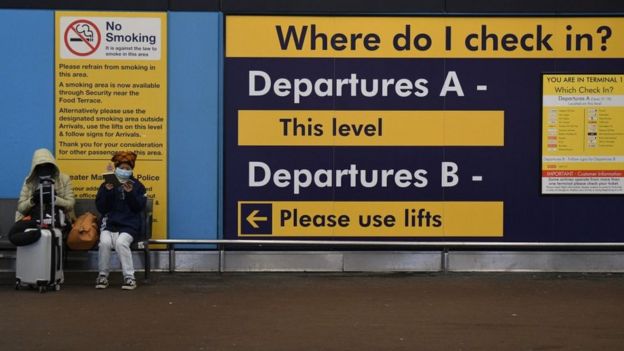
Image copyright Getty Images
Travel restrictions linked to Covid-19 have impacted demand for fuel
The AA said the cheapest average unleaded petrol price at the end of March of 108.13p was found in Northern Ireland.
But in the south-east of England the average was more 8p higher at 116.19p.
Competition has driven the price of petrol down towards £1.
By the beginning of April, the cheapest litre on the market was being flogged at just 102.7p, via a supermarket.
But hopes of it crashing through the £1 barrier remain in some doubt after the oil-producing countries' organisation Opec was reported to be working on restricting production.
Any such move would depend on Saudi Arabia and Russia ending their price war.
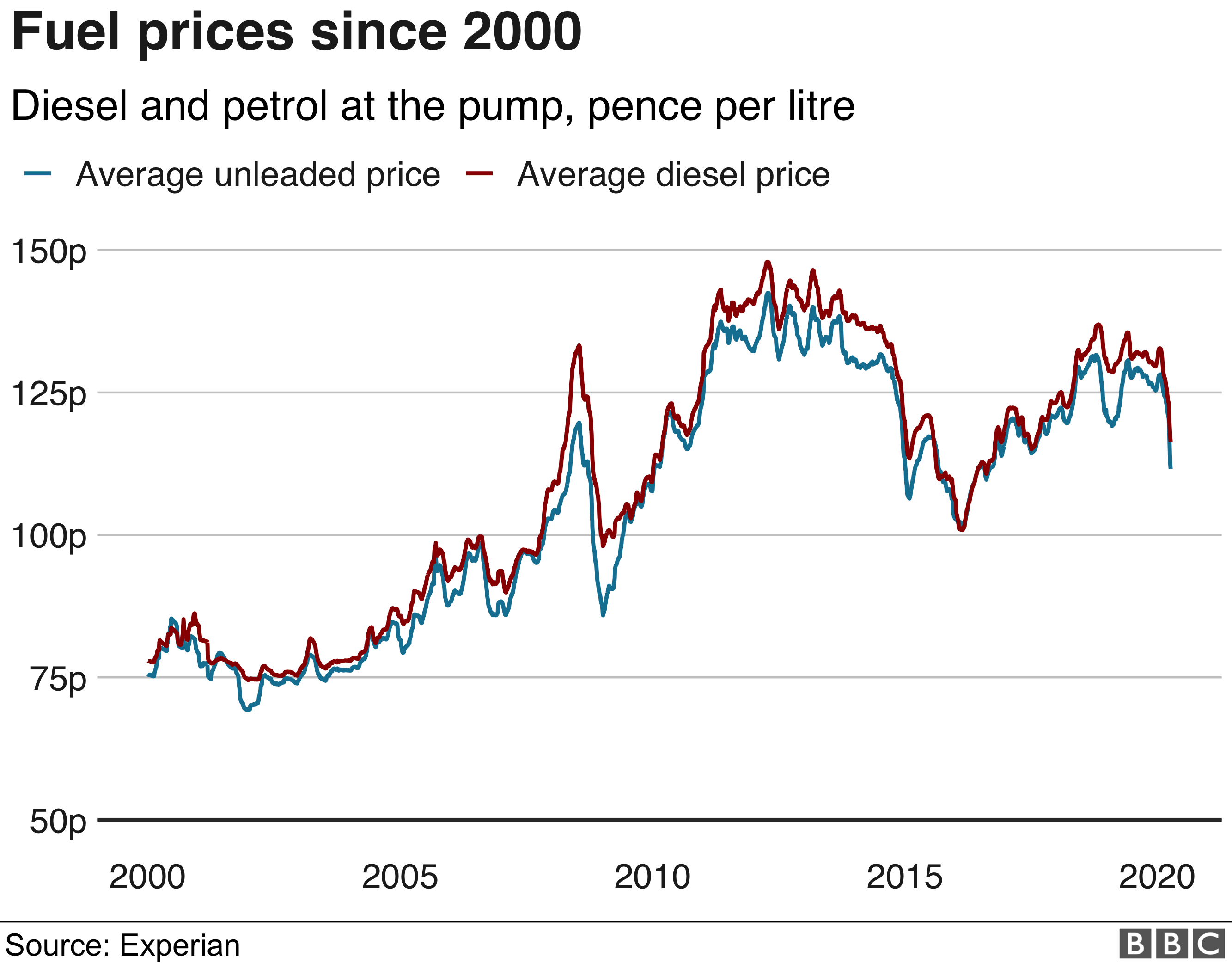
The rumour pushed oil prices up more than 20% in one day at the beginning of April.
Petrol pump prices remained unaffected by the short-term oil rise, partly because of the ongoing impact of Covid-19 on demand.
Experts reckon that oil prices are likely to be subdued, at least in the short term.
So how will that translate into UK pump prices?
"Despite the recent enormous supermarket price cuts, based on the wholesale cost of unleaded and diesel, there is still scope for further reductions at forecourts," said RAC fuel spokesman Simon Williams.
"Indeed, if the supermarkets were to more fully reflect the huge reductions in wholesale prices, we would certainly sell see unleaded sold for under £1 per litre, something they last did in March 2016."
However, the AA reported seeing the price fall below £1 a litre at a handful of petrol stations, in Northern Ireland and one near Birmingham.
Concerns are growing for independent fuel retailers.
The price cuts are hitting their margins and they are currently selling much less petrol because of the coronavirus shutdown.
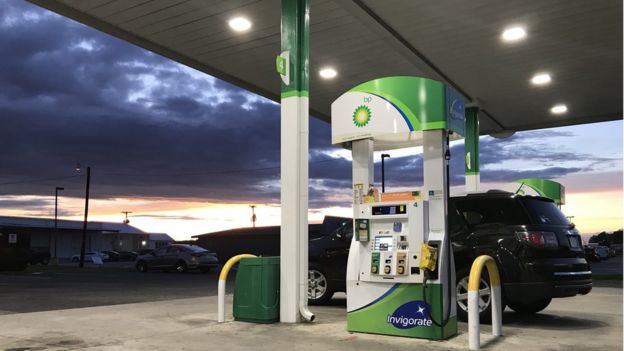
The Petrol Retailers Association (PRA) has warned that many petrol stations will have to close in the coming weeks, as sales of fuel dry up and their businesses become unviable.
A Department for Business, Energy & Industrial Strategy survey published in early April showed that petrol consumption was down by 75% and diesel by 71%.
"To help freight move and help key workers travel safely and independently through this period of crisis, petrol filling stations must remain open, but it is proving to be a challenge for many filling stations," said Brian Madderson, chairman of the PRA.
"Without immediate cash flow assistance, many more forecourts across the UK will have to close," he warned.